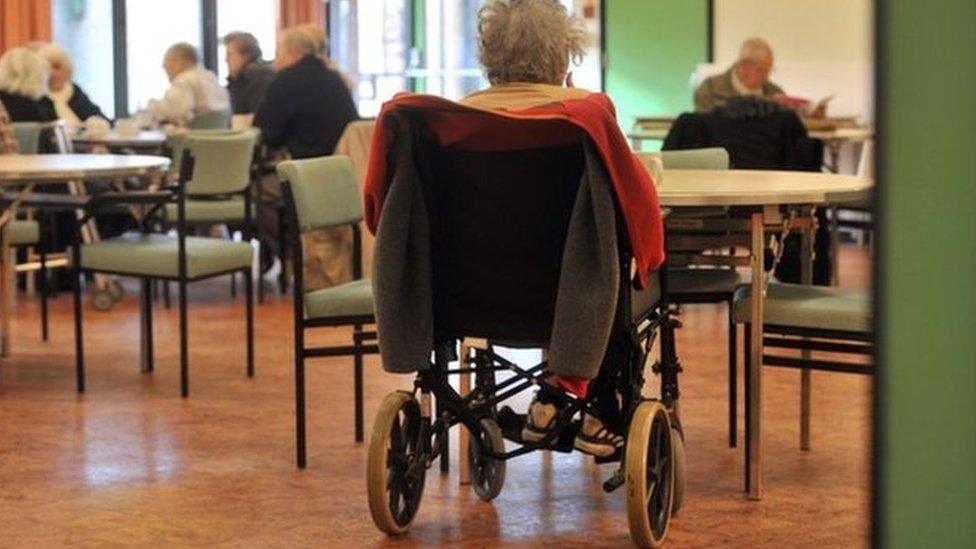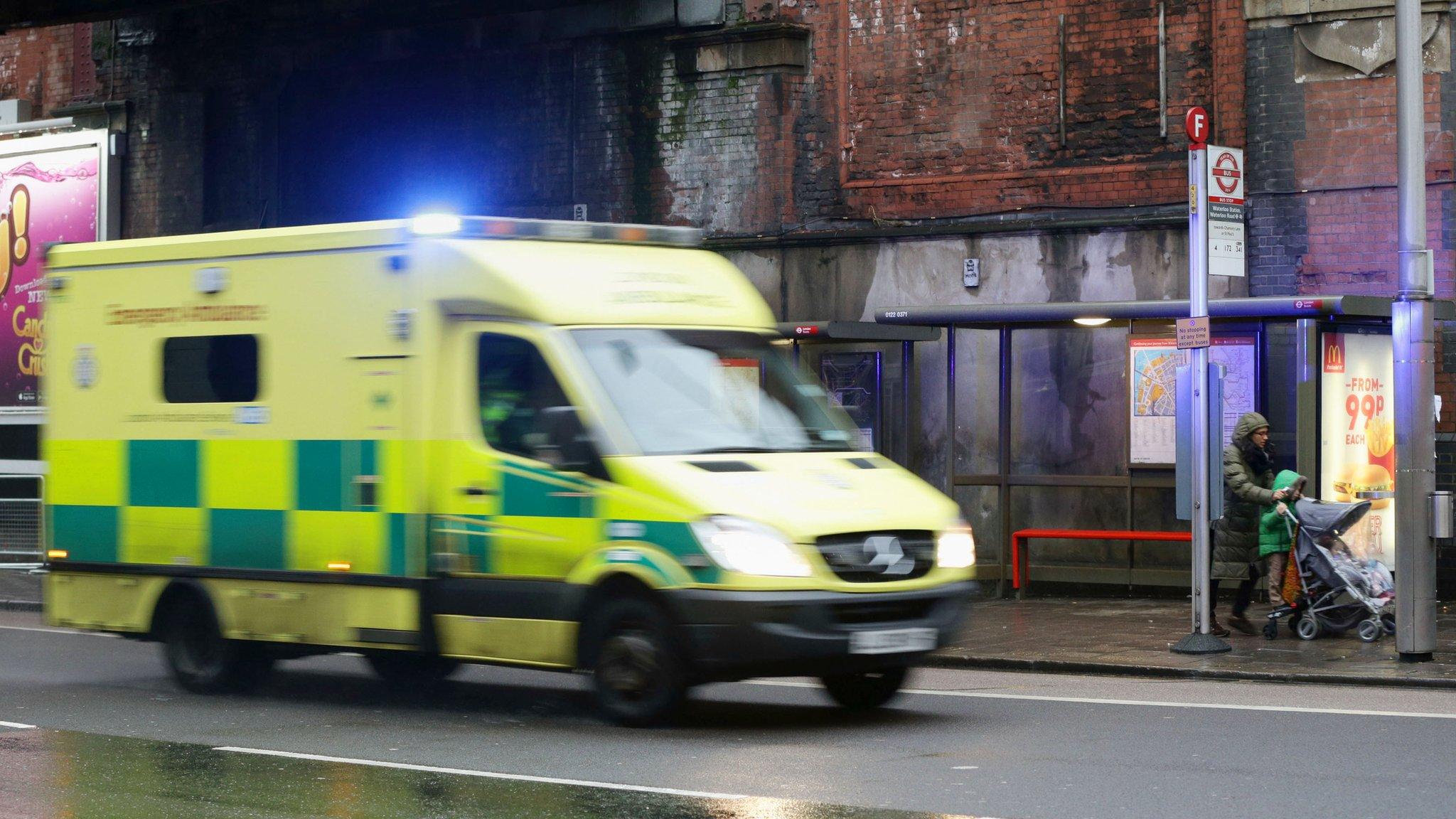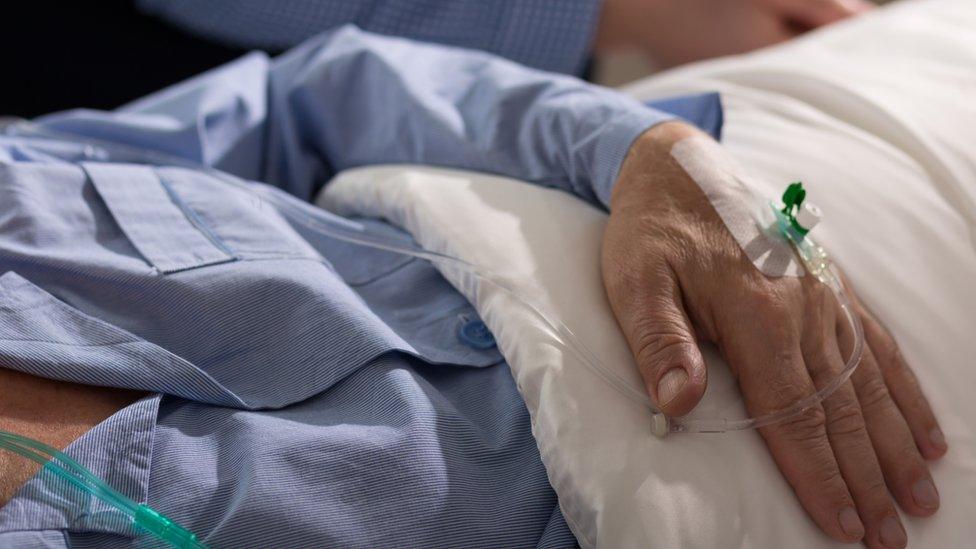NHS England hospital patients face record discharge delays
- Published

Hospitals are facing record levels of delays in discharging patients, figures from NHS England show.
There were nearly 185,000 days of delays in July, up a quarter on the same month last year.
The delays are caused by a lack of available care in the community, and mean vulnerable patients are left stuck on wards while arrangements are made for them to be safely discharged.
It comes as the NHS continues to miss its key waiting time goals.
Targets for A&E, cancer care, ambulance response times and routine operations are all being missed - continuing a trend that has been seen in recent months.
The A&E target has only been met twice in two years, while ambulances have failed to hit their target to respond to the most life-threatening calls for the past 14 months.
'Eternal winter'
Delays discharging patients are particularly problematic for hospitals as they have a knock on effect on other parts of the hospital, particularly A&E.
Dr Mark Holland, president of the Society for Acute Medicine, said the NHS was stuck in an "eternal winter".
"We should be winning in July, yet the latest statistics show urgent and emergency care under further strain and a considerable rise in delayed discharges."
Nigel Edwards, of the Nuffield Trust health think-tank, said: "The days of a traditional summer respite for the NHS are gone for good.
"The figure for delays in discharging patients from hospital is particularly worrying.
"What's more, I am very concerned that these official figures systematically understate the true scale of the problem - I think NHS England and the Department of Health should look more rigorously at the way they calculate these delays.
"The NHS stands no chance of transforming the way care is delivered to patients while it is still struggling with this problem".
- Published26 May 2016

- Published10 December 2015

- Published10 December 2015
- Published9 December 2015

- Published27 November 2015

- Published25 November 2015

- Published12 November 2015

- Published9 October 2015

- Published9 October 2015